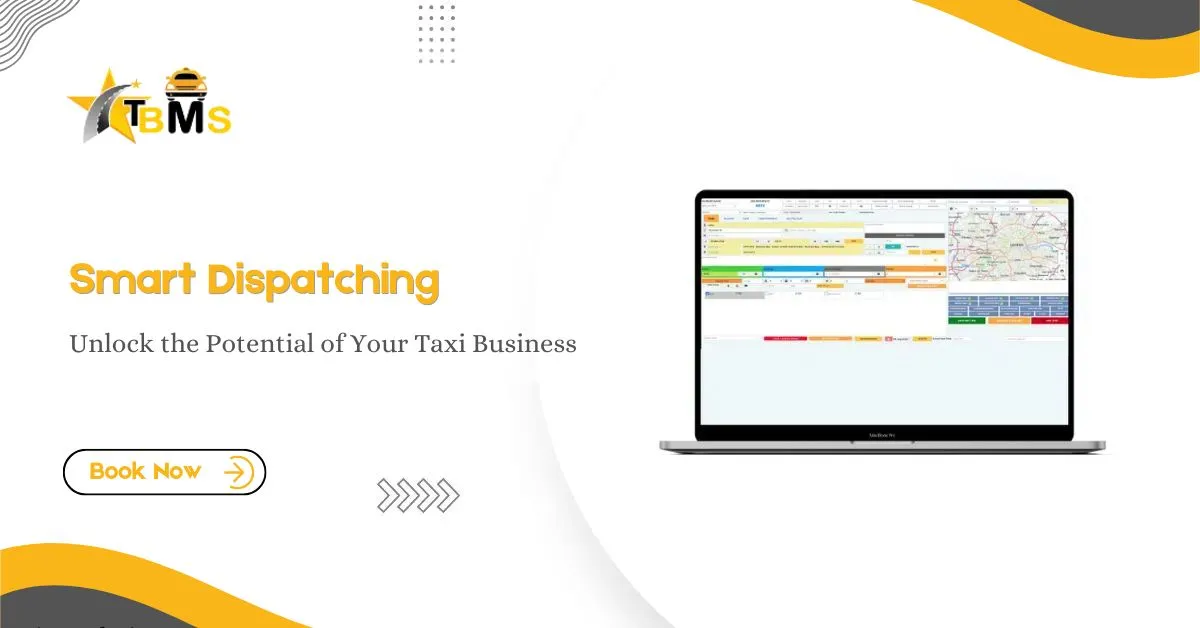

Smart Dispatching: Unlock the Potential of Your Taxi Business
In this fast world today, there is a growing demand for quick and reliable taxi services. To date, dispatching is an integral element of every business, but in this context, enabling the provision of taxi services. More intelligent dispatching revolutionizes taxi management by optimizing everything, from driver allocation to customer service. This guide will dig into how intelligent dispatching can unlock the full potential of your taxi business.
Evolution of Dispatching in Taxi Services
With modernization, today's dispatching is as integral to taxi operations as ever, but the means and styles have come a long way. The old systems based operations on manual operations, where dispatchers communicated with drivers via radio by assigning jobs to drivers based on proximity and availability. Of course, this used to work, but it was inherently prone to human error, delays, and other inefficiencies.
Smart dispatching also resulted from digital innovation. Modern dispatch systems are optimized for routes and driver assignments, which evidently improves the overall customer experience with GPS tracking, real-time data, and sophisticated algorithms.
Benefits of Smart Dispatching for Taxi Businesses
There are several benefits of intelligent dispatching for taxi businesses:
- Increased Efficiency: Smart dispatching systems save time when assigning drivers to customers. With real-time data, intelligent dispatching identifies the closest available driver and takes the shortest time possible, thereby reducing wait times for consumers and enhancing service delivery efficiency.
- Reduce Costs: Automating dispatching lowers the requirement for human resources, thus reducing operational costs. Smart routing tends to reduce fuel usage by ensuring drivers get the most efficient routes.
- Improving Customer Service: With real-time tracking, the customer will be able to see the progress of their ride. More importantly, smart dispatching will help increase responsiveness, making rides more convenient and reliable.
How Smart Dispatching Works
To ensure efficient management of taxis, several key technologies are involved in intelligent dispatching:
- GPS Tracking: Real-time GPS data informs dispatchers of drivers' whereabouts at any time, enhancing job allocation and route optimization.
- Algorithms and Analytics: Match drivers to passengers based on proximity and traffic with respect to on-time arrival. Intelligent systems deploy algorithm-based models that optimize waiting times and maximize efficiency.
- Mobile Application: Drivers and customers can inform each other and trace rides in real-time. Coordination between dispatchers, drivers, and customers when integrating mobile applications is smooth.
The Role of AI in Smart Dispatching
AI has taken intelligent dispatching to the next level. Advances in AI and machine learning allow AI systems to predict traffic behavior, discover the best routes, and even learn from previous dispatches to improve their future performance. AI dispatching also provides predictive analytics, which helps a business predict demand and plan resources accordingly.
Key Features of the Smart Dispatching System
- Automated Dispatching: This system automatically dispatches jobs to drivers nearest through real-time location information.
- Communication with Drivers: Ensures smooth communication between the dispatchers and drivers, enabling proper instructions and real-time route updates.
- Incorporating Customer Feedback: Allows the collection and analysis of customer feedback to improve the quality of service rendered.
Integrating GPS for Real-Time Monitoring of Vehicles
GPS tracking is one of the core features of smart dispatching systems. Real-time tracking allows dispatchers to monitor all the vehicles in the fleet, ensuring drivers follow the most efficient routes, avoid traffic, and ensure timely customer access. Additionally, it enhances driver safety as dispatchers can quickly respond in emergencies.
Mobile Apps for Effective Driver-Customer Interaction
Mobile apps have become the core of taxi services. Drivers can see their assigned tasks, communicate with dispatchers, and get real-time updates regarding traffic and routes through mobile apps. Customers can track their rides, estimate arrival times, and rate their experience, ensuring a smooth and efficient ride.
Overcoming Challenges in Adopting Smart Dispatching
Even with all the advantages, some taxi businesses hesitate to shift towards smart dispatching systems. Common issues include:
- Initial Investment: Upgrading to a smart dispatch system requires investing in software and technology. However, this initial investment often balances out with the long-term benefits.
- Driver Training: Drivers may need time to adapt to the technology. Offering training and support can minimize challenges during the transition.
- Data Security: As operations become more digital, taxi companies must ensure the security of client and driver information.
Case Studies: Flourishing Taxi Companies Using Smart Dispatching
Thousands of taxi firms have benefited from adopting smart dispatching. Even small and medium-sized companies have seen significant profitability increases through efficiency and minimized operational costs. One case study shows a regional taxi company reducing fuel costs by 25% by using a smart dispatching system with optimized routing and enhanced resource utilization.
Future of Smart Dispatching Systems
Smart dispatching holds immense promise in the future of transportation technologies. Emerging trends include:
- Autonomous Dispatching: Future smart dispatch systems may integrate autonomous vehicles, reducing the need for human drivers.
- Blockchain Technology: Blockchain can enhance transparency in dispatch operations and ensure security in payment processing and data sharing.
Conclusion
Intelligent dispatching is no longer a luxury but a necessity for any taxi business aspiring to compete with today's competition. In the taxi industry, firms that adopt innovative dispatching technology will benefit from efficiency, operational cost savings, and quality improvements in the overall experience of drivers and passengers. In this regard, innovation in the future will be critical in keeping pace with competitors in the business.